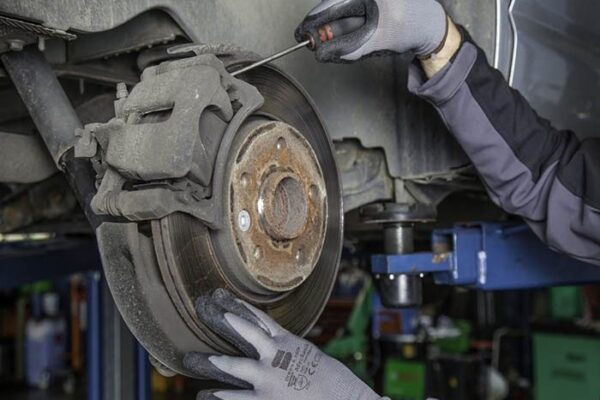Essential Brake System Repairs: Ensuring Safety on the Road

As an essential component of any vehicle, the brake system plays a crucial role in ensuring the safety of drivers, passengers, and pedestrians alike. Over time, brakes can experience wear and tear due to regular use, demanding timely repairs and maintenance. In this article, we will explore some common brake system issues and the necessary repairs to keep your vehicle operating smoothly and safely.
Brake Pad Replacement
One of the most common brake system repairs is replacing brake pads. Brake pads undergo significant friction during braking, causing them to wear down over time. When the pad thickness reaches a minimum level, they must be replaced promptly to maintain optimal braking performance. Signs of worn brake pads include squeaking or grinding noises, reduced braking efficiency, or a pulsating brake pedal. Regular inspections and replacing brake pads as needed can prevent more severe damage to other brake components.
Brake Rotor Resurfacing or Replacement
Brake rotors, also known as brake discs, are subjected to immense heat and pressure during braking, leading to wear and warping. If you feel pulsations or vibrations in the brake pedal while applying the brakes, it may indicate warped rotors. Additionally, a scraping or squealing noise while braking can suggest worn-out rotors. In such cases, resurfacing the rotors to eliminate minor irregularities may be sufficient. However, severely worn or damaged rotors require replacement to maintain braking performance and prevent further damage to the brake system.
Brake Fluid Flush
Brake fluid is a vital component for the brake system, as it transfers hydraulic pressure to engage the brakes effectively. Over time, brake fluid can accumulate moisture, which lowers its boiling point and compromises its effectiveness. To ensure optimum braking performance and prevent potential brake failure, regular brake fluid flushes are necessary. A flush removes old fluid and replaces it with fresh fluid, maintaining the hydraulic system’s integrity and preventing corrosion within the brake lines.
Brake Line Inspection and Repair
The brake lines are responsible for carrying brake fluid from the master cylinder to the brake calipers or wheel cylinders. Due to exposure to the elements and regular wear, brake lines can develop leaks or suffer from corrosion. Signs of potential brake line issues include a spongy brake pedal, loss of brake fluid, or the illumination of the brake warning light. Prompt inspection and repair of damaged or corroded brake lines are crucial to prevent brake fluid loss and maintain the integrity of the brake system.
Brake Caliper Service
Brake calipers house the brake pads and play a vital role in the braking process by squeezing the pads against the rotors. Over time, calipers can become stuck or fail to operate correctly, resulting in uneven brake pad wear or dragging brakes. If you notice uneven pad wear or experience difficulty releasing the brakes, caliper service may be required. This involves cleaning, lubricating, or replacing the calipers to ensure smooth operation and even pad contact.

